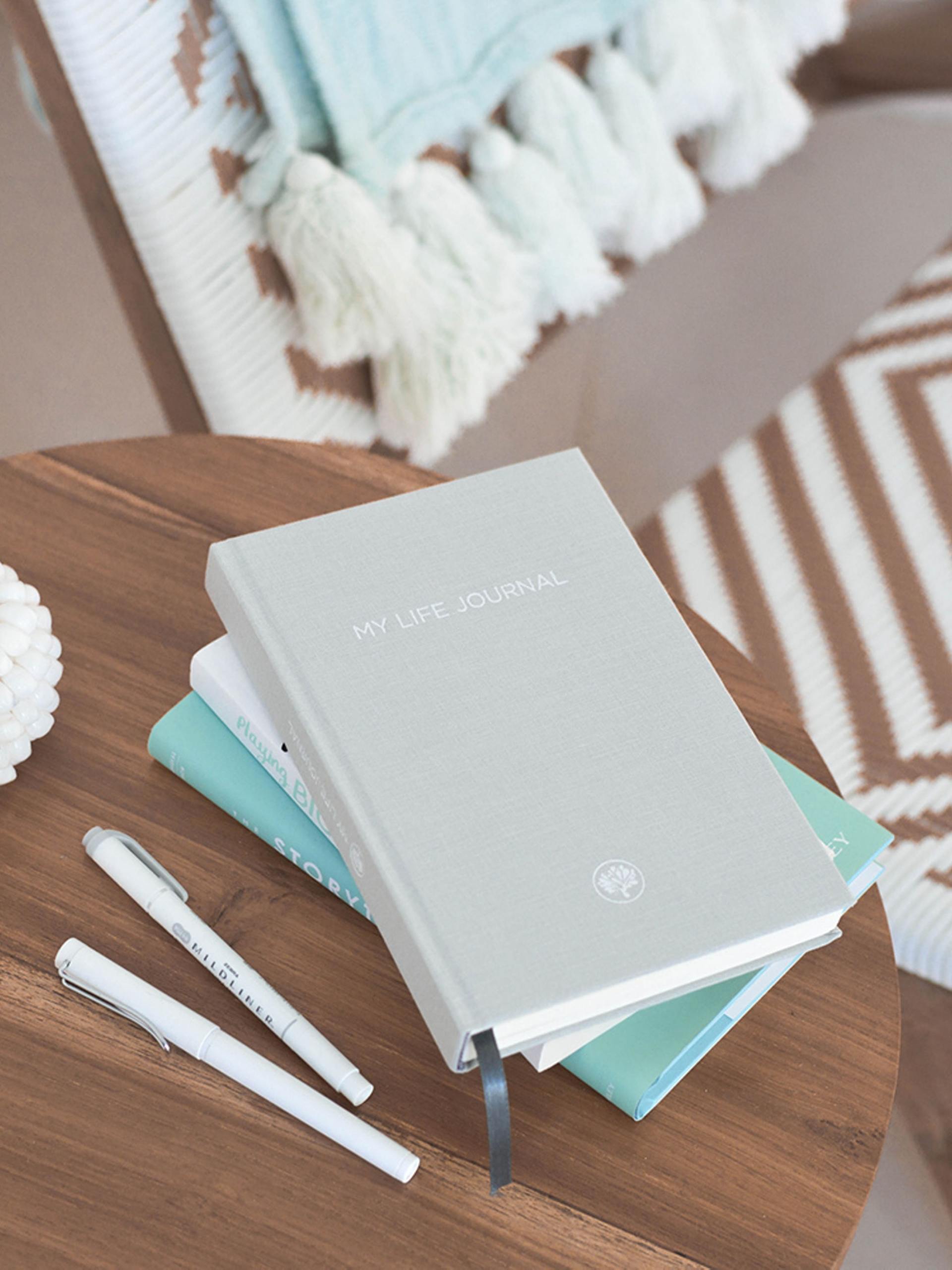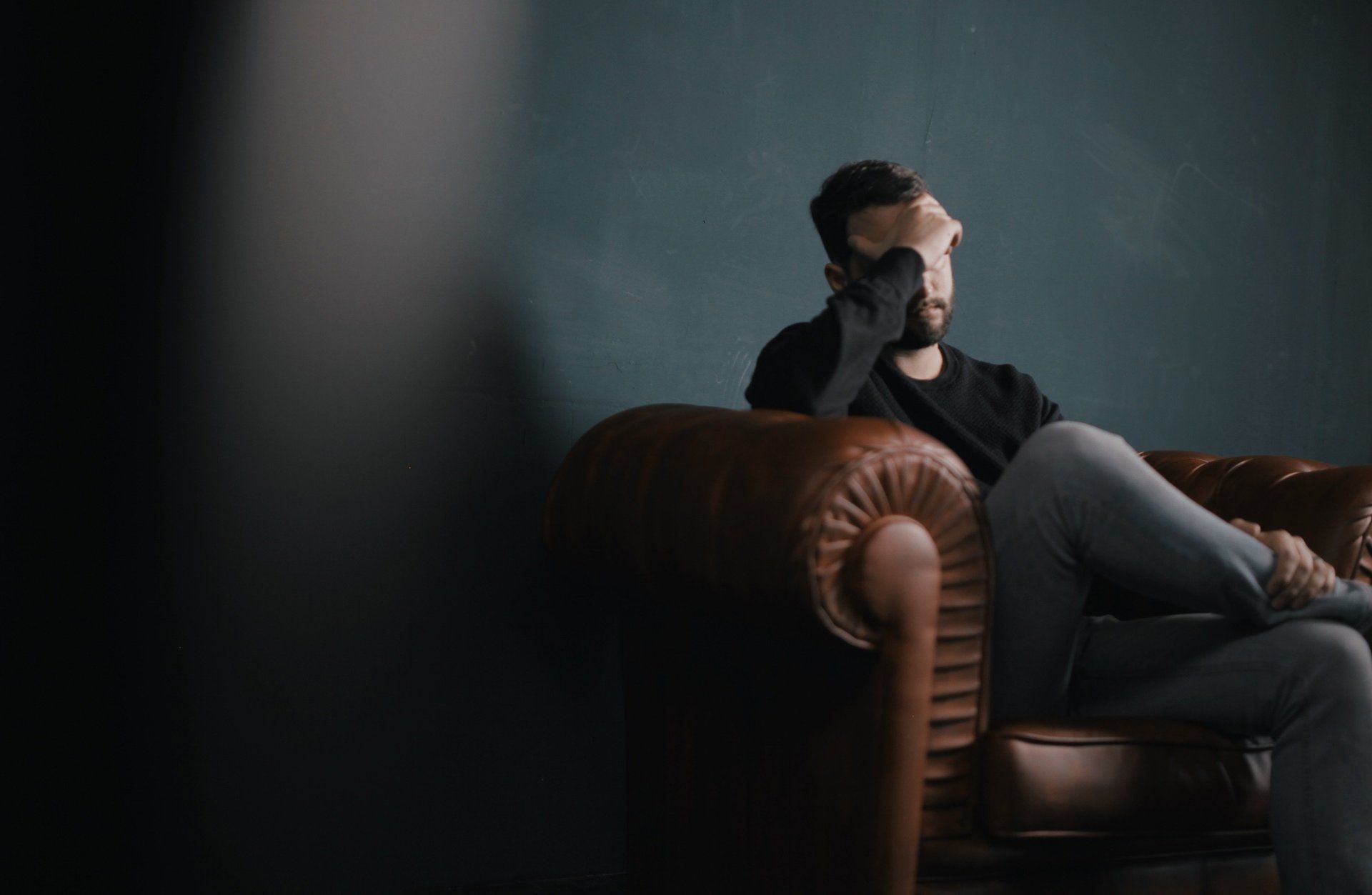Chronic Stress and Anxiety
Margaret Denise Brauns, MS, LMFT
How does chronic anxiety impact you? Is anxiety taking days and years from your life?

Anxiety is often the underlying cause of physical symptoms mistaken for other health conditions. We frequently believe we have a serious medical condition long before we recognize we have anxiety, or even consider an anxiety disorder. It is not uncommon for clients, specifically adults, to deny having anxiety but readily admit to worrying constantly.
A recent study from the National Institute of Mental Health revealed that nearly 70% of Americans suffer from at least one type of anxiety disorder. This report should be of no surprise: we live in a culture where chronic stress is an accepted part of daily life. At early ages, we are indoctrinated with suggestive messages that busy is healthy, we must perform faster, accomplish more, and demonstrate success by perfection-based ideology.
Having been conditioned to believe that more is better, we frequently add too many things to our plates. We have difficulty setting boundaries and saying no. Many believe they thrive when busy and even express a sense of pride when discussing a relentless schedule. The inevitable outcome of a life packed full with every minute accounted for, is overwhelm, burnout, and chronic anxiety.
In my experience, clients easily express a desire to feel less overwhelmed and have more leisure time. However, when asked to let go of unnecessary commitments, there is resistance. Inevitably, after living with chronic stress for long periods of time, the norm may be feeling anxious. A change that creates open time and space, can create a "time void" that is uncomfortable. In fact, letting go of anxiety or stressors can actually be anxiety- provoking.
To combat chronic anxiety, clients must commit to reducing stress, as opposed to “managing stress”.
Stress in life is unavoidable and it is true that some individuals have less stressful lives due to advantageous personal circumstances. Regardless, of our circumstances, it remains common to accept unmanageable workloads, entertain stressful relationships and continue adding activities to full schedules. For change to occur, we must let go of habits that leave us mentally and physically depleted. You can choose to fill the "time void" with self-care which may include rest.
Americans have learned to accept chronic anxiety as a way of life, even knowing of the negative implications on our health and relationships. Health experts have concluded that chronic stress reduces our life span by an average of 6 years.
The goal in my office is stress reduction. If your life feels overwhelming and unmanageable, you must make choices to change it. Trying to manage the unmanageable is a losing battle.
Pay attention to how often you hear or use the term stress management. Identify activities you don't need to do such as attending a social function where you know few people or cleaning an already tidy house. Learn to put your health first by prioritizing time for rest and recharging. The elimination of unnecessary stressors and reduction of chronic anxiety will increase your lifespan and improve the quality of your life.
The number of stressors you have is generally a choice. How you respond to stressful events is also a choice. Learn how to eliminate stress and reduce anxiety. You can respond to life in ways that create opportunities for living the life you want.

Benefits of Journaling Journaling has regained popularity in recent years in mental health. It has once again become a tool for a variety of mental health conditions including anxiety, depression and reducing stress. Whether you are in therapy or on a path of self-discovery, writing your thoughts and experience is is valuable. Research has proven that strategic, committed journaling can actually change the way one thinks, feels and behaves. Studies reveal that individuals who commit to 30 days of writing daily in a gratitude journal, report significant improvement in their positive outlook on life. An additional benefit is that success in journaling is not impacted by financial circumstances, education, age, or writing skills. Journaling only requires a desire and commitment to the process. While there are technically no wrong or right ways to journal, there are strategies to help get you motivated to begin. Ask yourself about the value you see in journaling and if you can to commit to the process. Discuss lack of motivation or resistance with your therapist or someone who successfully journals. Try following general guidelines to help get you started or research journaling prompts. Tips for Journaling: Buy or find a journal you’d like to use. Keep it in a secure but accessible place. Commit to writing every day for 30 days. Keep going if you enjoy it! Set a consistent time aside each day for journaling. It doesn’t need to take 1 hour; start with a 5-minute commitment. Once you begin writing, keep your momentum going. Write anything that comes to mind… Write honestly. While journaling is a creative form of writing, in order to gain self-awareness, it is not intended to be fictional. Accept that journaling is not about using correct grammar or perfect writing skills. Allow yourself to be spontaneous. Be confident that no one is going to read your journal. (If you believe there are boundary issues in your home, learn how to set boundaries. Keep your journal at work or in a locker at school if you must.) If you feel blocked in writing, use prompts from journaling books or websites. Try gratitude journaling, or focus on journaling about something of interest to you. (i.e. parenting, relationships, childhood memories). Do not critique or judge your own writing. The key is honesty and spontaneity. Make sure you are not censoring your writing. Ask yourself if you are writing what you think should do or feel or if it is what you really feel, what really happened or what you wish happened? Look forward to the self-discovery in your writing. Even facing hard truths leads to a more peaceful way of living. Do not be stingy with yourself about journals if possible. Buy a cover you enjoy and replace journals frequently. When you are ready to start a new journal, do it. Some people ceremoniously burn or destroy journals when complete. Develop your own traditions with journaling. Have fun with it and enjoy the process. Just get started. The longer you journal, the sooner you will develop a routine and style that works for you. Allow yourself to discover your truth through journaling. It is an excellent tool in the process of self-awareness and change. Self-awareness can help you understand your emotions and behaviors and can create opportunities for change. Journaling is easy, inexpensive, and well worth the effort. Today is a great day to begin journaling.

Relationships suffer with unresolved conflict. Even strong relationships become vulnerable when problems occur and no resolution is in sight. Unresolved conflict that becomes circular, hostile and resentful can chip away at the foundation of any relationship. Learning the art of apologizing and forgiveness is critical in relationships. We all have days when we are not our best self and we make mistakes or poor choices. "To error is to be human". When our words, decisions, or mistakes hurt others, intentionally or not, we must learn to apologize. Resolving conflict with grace brings us closer together: unresolved conflict can break down any relationship. Apologizing can be difficult; it is natural to feel justified in action or not want to accept responsibility for mistakes. Barriers to apologizing include disagreement about the problem, or the fear of admitting we are wrong. Feeling vulnerable when we apologize is common. It is most important to understand that we can increase intimacy and strengthen our relationships by learning to apologize. Apologizing can be this simple: 1) State with sincerity that you are sorry 2) Identify what you can do better 3) State your intention to respond differently in the future. 4) Be willing to listen to feedback without defending your actions. 5) Accept that forgiveness may take a little time. Forgiveness is Underrated While apologizing can be hard, forgiving others when we feel wronged can be even more difficult. Once you have received a sincere apology, it is a choice how to proceed. Forgive the offense or harbor resentment? Choose to trust the sincerity or make exit plans? Holding onto resentments or past events will eventually lead to the unraveling of relationships. Practice forgiving even when it is difficult. Forgiving can leave us feeling vulnerable: we are fearful that we may be hurt again. Learn the skills to apologize and the skills to forgive. Forgiveness of others is a true statement of love. In forgiveness we are saying, I love and value you even though we are both imperfect. When we forgive others, we are able to free ourselves of anger and negativity that hurts us. We are also able to reopen the door to communication and intimacy in our important relationships. “Forgiveness is the truest form of love. It takes a strong person to apologize and even a stronger person to forgive." Today is a great day to learn how to apologize and how to forgive.

How to Select a Therapist We generally spend more time in choosing a new cell phone than in selecting a mental health therapist. Like cell phones or cellular plans, not all therapists are alike or offer the same services. When we are under stress or experiencing a personal or relational crisis, most of us are unable to think clearly about choices in mental health . Frequently, new patients call therapists without researching options. The importance of selecting the best therapist for you can influence the outcome of therapy. Research concludes that the relationship between the patient and therapist is the single most important factor in determining positive results in mental health. Consumer Reports published their findings which identified two critical factors : 1) the quality of the relationship with the therapist. 2) the length of time in treatment –a longer period in therapy, produced better results. Having a plan of action in selecting a therapist will save you time and money and increase the positive outcomes for therapy. Many therapists offer a free consultation on the telephone to assist in deciding whether the services they offer can meet your needs. Preparing for your search for a therapist: • Seek a list of referrals from trusted professionals such as a physician. • Plan to interview at least four or five therapists. • Make a list of questions to ask during interviews. • Write out three objectives you hope to achieve in therapy. • During the interview, notice your comfort level. Do you feel rapport? Does conversation come easily? Possible questions you might ask potential therapists: • Do you work with children, couples or adults? • What is your training and how long have you been a therapist? • Do you have experience in… (specific area)? • Wh at are your fees and the length of sessions? • How often do you recommend attending therapy? • What strategies do you use when working with patients? • How do you measure successful outcomes in treatment? Asking questions about therapy may feel uncomfortable, especially if you have not attended therapy before. While talking to several therapists or getting a referral may feel awkward, remember that you must feel comfortable to share about yourself with the therapist you select. When patients feel unable to speak openly, they are less likely to share personal details or emotions . Any therapist will be more effective when a patient is comfortable and does not feel judged. If your phone interviews lead you to a therapist with whom you do not feel comfortable, do not give up on finding treatment. Decide in advance that what you learn from each person will be valuable whether it is one meeting or many sessions. Never let one bad experience keep you from pursuing the services of another professional. Remember that you can choose who you work with and be active in the process of therapy. Stay informed and become an educated consumer when seeking the support of a therapist. A therapist's job is to assist you; your job is to be willing to receive guidance and make intentional efforts to create the changes you are seeking.

